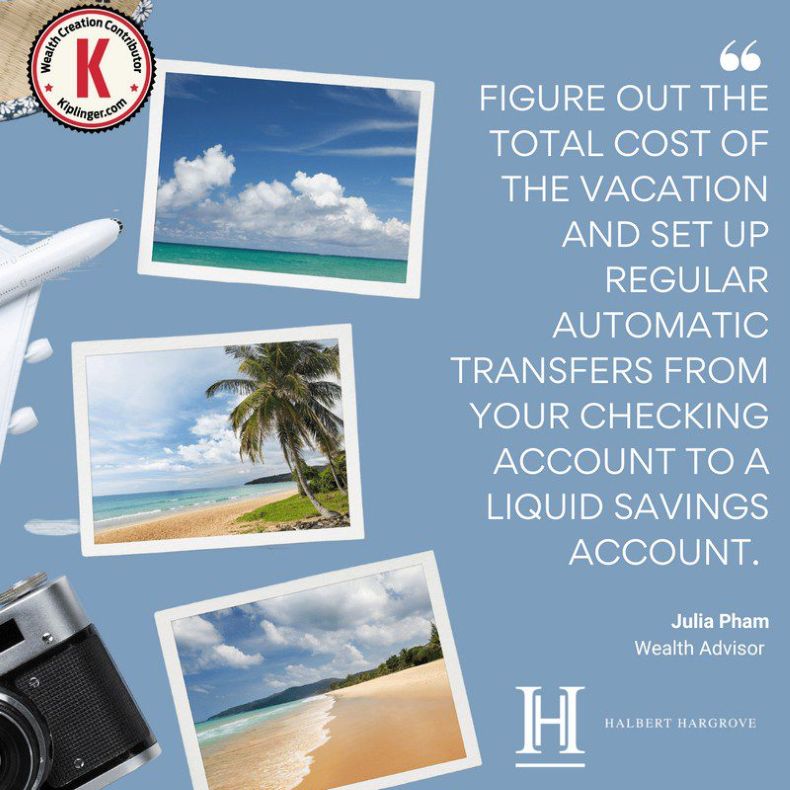By Julia K. Pham, CFP®, AIF®, CDFA®, Wealth Advisor featured in Kiplinger
A well-thought-out budgeting strategy can help you get the most out of your money while also getting the most out of your vacation.
With the summer months around the corner, many of you may be dreaming of your summer vacation.
Maybe you see yourself digging your toes into a white sandy beach, going on an outdoor adventure in a new country or making memories with friends or family in a new city.
The increased costs of travel these days, especially the cost of air travel, are giving many sticker shock.
In fact, the average airfare in the U.
S. rose 17.7% in March 2023 over the previous year.
Planning a vacation takes time and a well-thought-out strategy if you need to stick to a budget. Here are some vacation-planning tips to help you get the most out of your money so you can get the most fun and relaxation — or adventure! — out of your summer vacation.
Choose your summer vacation destination carefully.
If you’re traveling on a budget, some places are cheaper to travel to. Consider locations where you can go during the off-season, which will not only save you money, but will help you avoid large crowds. Nobody likes trying to capture a special photo moment with a bunch of strangers in the background.
If you’re traveling to a different country, currency exchange rates can also make a huge difference in your budget. Countries such as Vietnam, Mexico, Japan and South Africa are among the best places to visit where the dollar is strong.
Book travel ahead of time.
The best time to book domestic flights, according to ThePointsGuy.com, is one to four months ahead, while international flights should be booked six months ahead.
The Google Flights team analyzed five years’ worth of historical airfare data and found that it’s cheaper to fly during the week, and flights that depart on Monday, Tuesday and Wednesday are 12% cheaper than weekend departures. The same team also found that nonstop flights have been, on average, 20% more expensive than a flight with stops. So, if you have time and a willingness to make an extra stop, you might save some serious cash.


